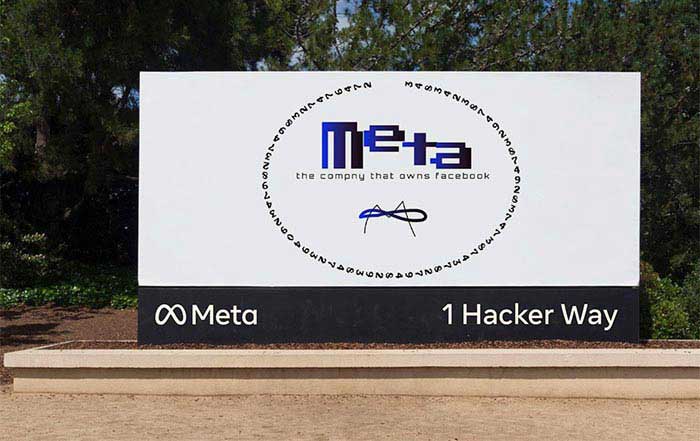We already know Mark Zuckerberg would like all Facebook users to call his company using a brand new name- Meta. Facebook has endured troubled times in recent years. How does this company's originator plan to turn the tide?
At the recent Facebook Company's Connect conference, Mark Zuckerberg had this to say: "We're today widely regarded as a social media company; people think of us as a company that builds the technological means to connect people. Well, isn't it time to adopt a wholly new company brand? We want to encompass everything else we do. Let's reflect on who we are- reflect on what we plan to do." Zuckerberg said this just before making public Facebook's new name- Meta.
No one doubts that Facebook ranks among the world's most iconic brands. Once upon a time, this used to suit Zuckerberg just fine. Think of it- In 2019, the digital mega entrepreneur slapped the dominating Facebook name on the company's other brands- Instagram, Messenger, WhatsApp, and Oculus. Hopefully, this would remind everyone that Facebook wasn't merely Facebook. Instead, it comprised a family of apps. But there's something else coming up. Zuckerberg says: Our brand is tightly linked to a single product. I don't think this can possibly represent everything we're currently doing. Of course, this cannot reflect what we'll do in the future either. In view of this, we expect our new name to signal the future. We want to go beyond social media; yes, let's go beyond the bad news."
Generally, companies tend to go for a rename for certain select reasons. There are times when a name change signals new business ambitions. This was the case when Apple came up with the iPhone- thus, the company needed to change its name from Apple Computer. Sometimes a name merely symbolizes a reflection of corporate restructuring. Again, this was the case when Google changed the parent company name to Alphabet. So, in a moment, Larry Page became the Alphabet-not Google- CEO. What was the idea? The corporate giant was clarifying that its business was moving ahead- beyond merely the search business. And sometimes, a company basically wishes to distance itself from a brand gone rogue. This was the case when the famous cigarette-maker Philip Morris changed names to Altria way back in 2001.
So, Facebook's rebranding to Meta carries some characteristics of all three. The new company wishes to define itself as a metaverse enterprise. It doesn't want to be merely known as a producer of social media products. And rather than simply oversee the Facebook app, Mark Zuckerberg now wants to have his imprints on the new larger company's pursuits. Of course, Zuckerberg also wants Meta to get away from the big bashes of Facebook- Facebook blunders that have had the company taking blows left, right, and center. Yes, Zuckerbeg wants a company that will not be synonymous with skepticism, mistrust, genocide, and conspiracy theories.
Analysts, however, say that if Zuckerberg's company wishes to move beyond many years of backlash, it must do much more- a new name is certainly not enough. They note that a new brand constitutes key decisions, behaviours, actions, graphical elements, and digital interactions. So, "if Meta still looks like Facebook, runs its operations like Facebook and sounds like Facebook, chances are most people will see it as just that- a ressurected Facebook." The CEO and founder of Rebrand Anaezi Modu says.
For a company that hopes to bring its billions of people on board into Metaverse, the question of brand perception certainly matters. As noted, Facebook has lately been in a trust crisis. Many have expressed their displeasure with Facebook's policies. Many won't trust Facebook to keep their data. Due to various scandals, many try to use the platform much less than they used to. And none of these challenges can be casually wished away by merely renaming the company to something else.
Of course, despite the bad tidings, billions still use Facebook products on a regular basis. Yes, as one analyst noted, the more intimate a person becomes with a brand, the more willing the person becomes to pay for its services and the less the person becomes willing to do without it. Yes, this means there's a business and ROI importance to intimacy.

